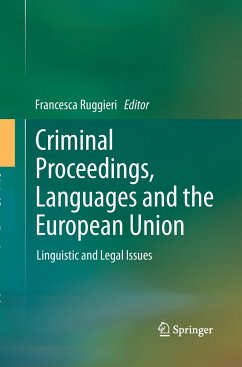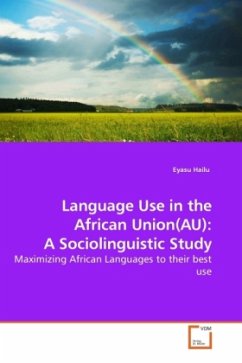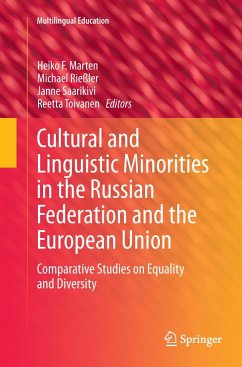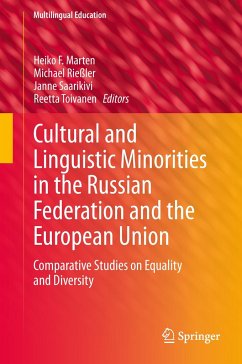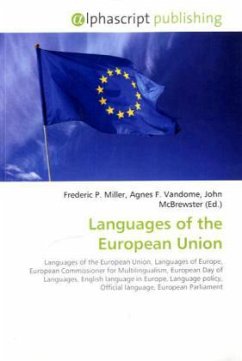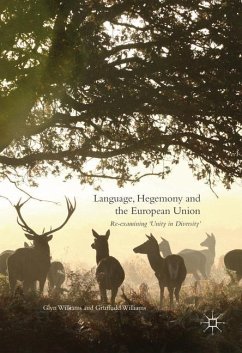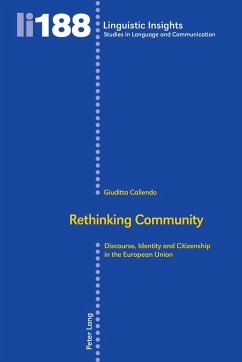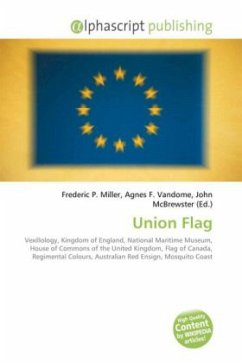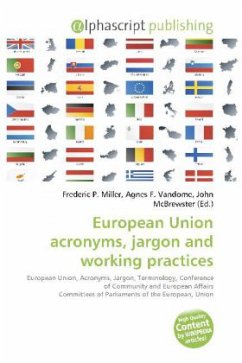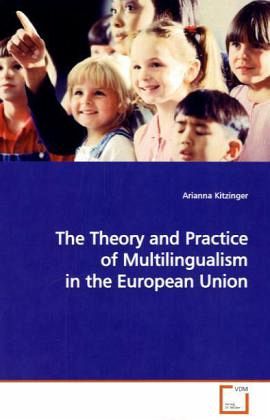
The Theory and Practice of Multilingualism in the European Union
Versandkostenfrei!
Versandfertig in 6-10 Tagen
32,99 €
inkl. MwSt.

PAYBACK Punkte
16 °P sammeln!
On 1 May 2004 ten new member states joined the European Union. It has been the biggest enlargement in the history of the Union. Economists counted, historians analysed and linguists started to worry. The central problem of their worries might be expressed in the question: "How will the EU be able to handle so many languages?" Or to put it in another way, "How can the EU cope with multilingualism?" This is a timely problem that demands a rational approach, and yet is often accompanied by emotional overtones. Therefore, I intend to focus my thesis on this topic trying to take into consideration ...
On 1 May 2004 ten new member states joined the
European Union. It has been the biggest enlargement
in the history of the Union. Economists counted,
historians analysed and linguists started to worry.
The central problem of their worries might be
expressed in the question: "How will the EU be able
to handle so many languages?" Or to put it in
another way, "How can the EU cope with
multilingualism?" This is a timely problem that
demands a rational approach, and yet is often
accompanied by emotional overtones. Therefore, I
intend to focus my thesis on this topic trying to
take into consideration the puzzling question: Do
you speak European?
On the basis of the problem related above, a series
of systematic questions will be raised so that we
may introduce the present status and use of
languages in the European Union from the aspect of
linguistic diversity.
European Union. It has been the biggest enlargement
in the history of the Union. Economists counted,
historians analysed and linguists started to worry.
The central problem of their worries might be
expressed in the question: "How will the EU be able
to handle so many languages?" Or to put it in
another way, "How can the EU cope with
multilingualism?" This is a timely problem that
demands a rational approach, and yet is often
accompanied by emotional overtones. Therefore, I
intend to focus my thesis on this topic trying to
take into consideration the puzzling question: Do
you speak European?
On the basis of the problem related above, a series
of systematic questions will be raised so that we
may introduce the present status and use of
languages in the European Union from the aspect of
linguistic diversity.



